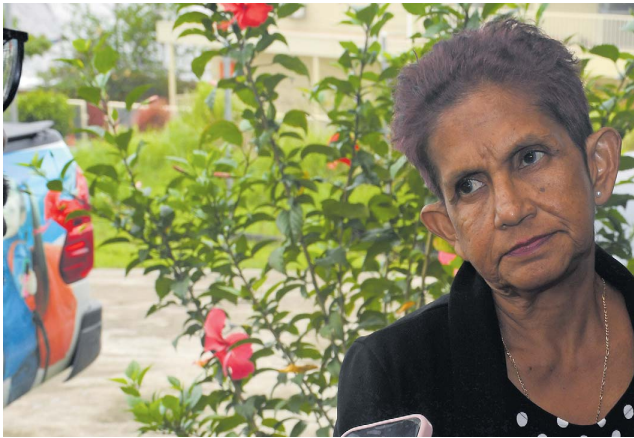SOME children still go to school without lunch, according to the Foundation for the Education of the Needy Children in Fiji, executive coordinator, Nirmala Nambiar.
In a village in Naitasiri, Ms Nambiar said, mothers have taken matters into their own hands by running a community kitchen to make sure no child goes hungry to school.
“Mothers take turns cooking meals for children at school. The school provides a cooking area, and the food is served at lunch and sometimes breakfast to ensure children don’t go hungry,” she said.
She said many families simply cannot afford daily meals because of financial hardship.
“That’s why initiatives like this are so vital. They make sure children can concentrate in class instead of worrying about food.”
While food insecurity remained a pressing concern, she said, students also struggle with other basic needs, such as school uniforms.
“We often encounter students who don’t have proper uniforms, and many lose their homes in fires or floods. We try to support them by providing backpacks, uniforms, and other essentials.”
Despite the overwhelming challenges, she said, they would continue to do everything possible to help.
“We can’t control natural disasters or economic struggles, but we can stand beside these families and make sure their children have a fair chance at education.”
She was responding to earlier comments made by the Sugar Minister, Charan Jeath Singh, who said some students cannot afford uniforms or transport.
While others, Mr Singh said, have access struggles to technology or even necessities like safe water and sanitation in schools.
Assistance does not always reach classrooms
SOME children who receive government back-to-school assistance never see that money used for their education, according to Foundation for the Education of the Needy Children in Fiji, executive coordinator, Nirmala Nambiar.
“What we find is that some children receive the $200 back-to-school assistance, but the money does not
always go directly toward their education,” she said.
Because of poverty, she said, many children remain trapped in a cycle of disadvantage.
Families often use the money, she said, to cover food, bills, and other necessities before it reaches the child’s education.
“While the intent is good, it’s not sufficient to ensure every child has the support they need. Our goal is to leave no child behind, and that remains the sole objective of these programs.”
When asked whether the $200 back-to-school assistance was sufficient, she said the Government should review the amount.
“We want children to attend school, receive a proper education, and grow into productive members of society.”
She was responding to earlier comments made by the Sugar Minister, Charan Jeath Singh, who said too many children still face barriers despite free education assistance being provided.
Mr Singh said many children in Fiji still face significant barriers to education, whether due to economic challenges, health issues or lack of resources.
‘Many still face challenges’
DESPITE the numerous initiatives introduced by the government to assist school children, many still face challenges.
Minister for Multi-Ethnic Affairs and Sugar Industry Charan Jeath Singh said some cannot afford uniforms or transport.
“While we have made good progress in making tuition free and accessible, too many children still face barriers,” he said.
Mr Singh said others have access struggles to technology or even necessities like safe water and sanitation in schools.
“Many children in Fiji still face significant barriers to education, whether due to economic challenges, health issues or lack of resources.”
He said a recent report by the Pacific Community, titled the Status of Pacific Education, revealed families still faced hardship.
“The impact of recent changes in industries, particularly in the sugar industry, has added pressure on families, making it even more challenging for them to support their children’s education.”
While speaking at a fundraiser for the Foundation for the Education of the Needy Children in Fiji at the Fiji
Football Academy in Labasa, he said, this was where non-profit organisations and civil societies stepped in.
“To date, FENC Fiji has assisted over 40,000 children across the country, which also includes the remote and maritime islands.”
He said the Government was committed to working with FENC Fiji to identify the children who need the most support, to bridge gaps in access and to ensure that every dollar spent truly changes lives.



